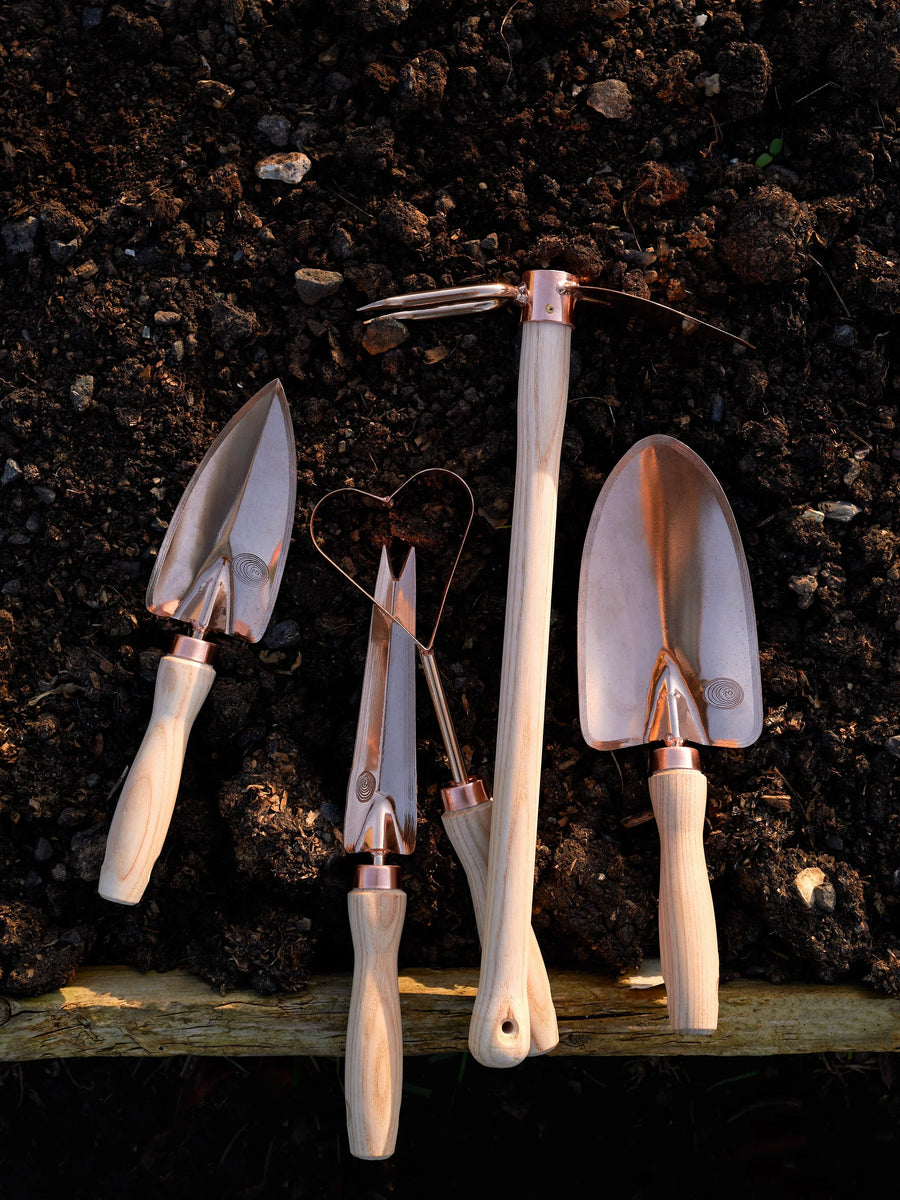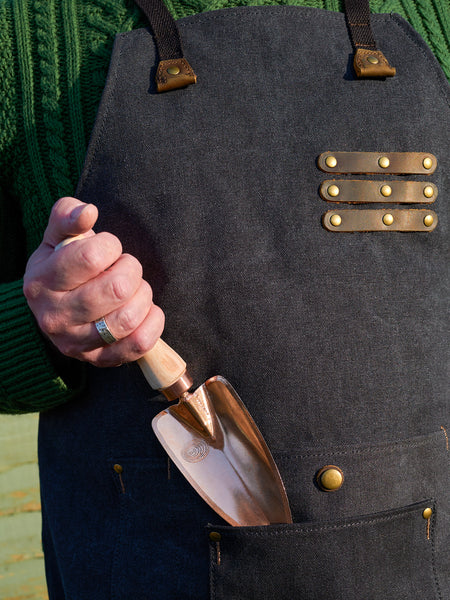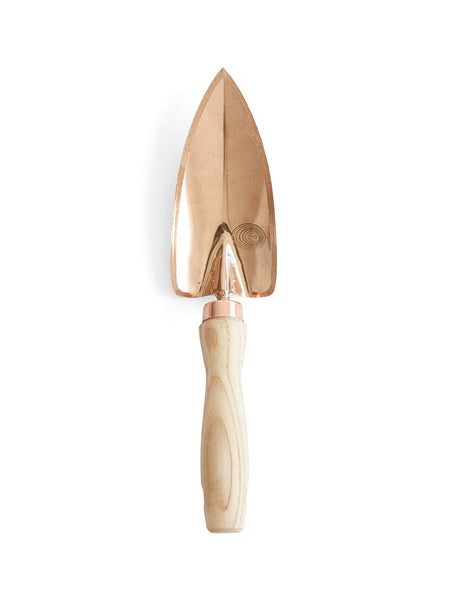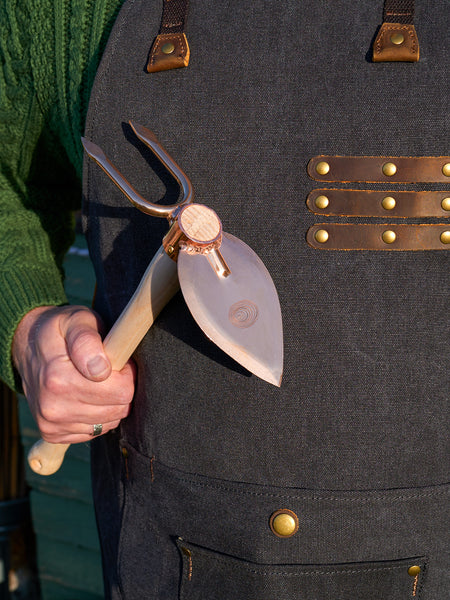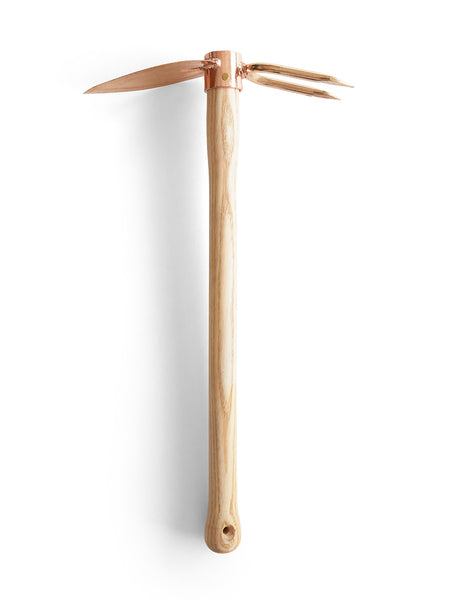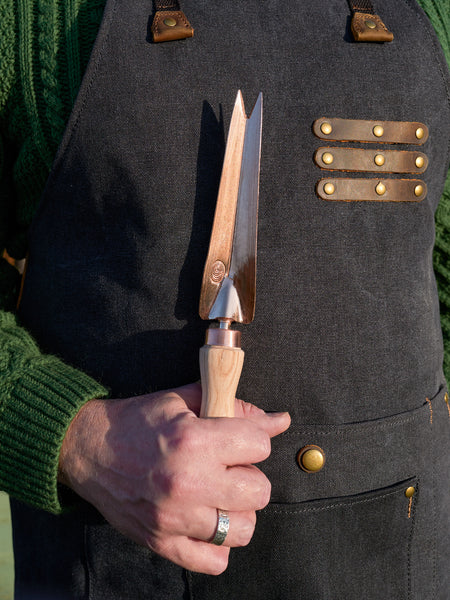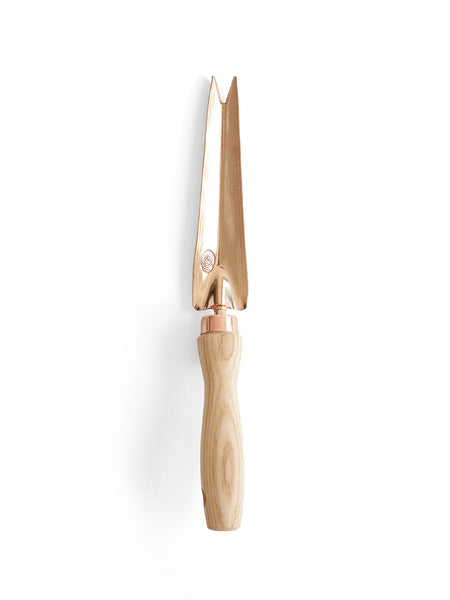Copper tools look too good to be used, right? Well, you'd be missing out if you didn't pick them up and dig straight in. As well as being supremely practical tools, they make covetable gifts for gardeners when new and softly gleaming; that's if you can bear to part with them!
In its pure form, copper can be beaten or formed into complex shapes without cracking. Then, when combined with tin and small quantities of other metals to make bronze, copper retains its flexibility and becomes considerably harder and more durable. So although we refer to them as copper tools, they are technically bronze.
So why should you choose copper tools over those made from steel?
Firstly, copper can be beaten to form a thin edge which can be sharpened with a whetstone or file. What is more, because copper has a low friction coefficient, there is less tendency for soil to cling to it when compared to other metals. Hence, copper tools glide through the ground and need minimal cleaning after use; although, like all tools, they should always be stored dry.
Unlike iron and steel, copper does not rust, which prolongs the life and effectiveness of the metal. Over time the surface will develop an attractive, mottled patina that helps to protect the surface beneath. I rather like the look of it, but if at any time I want to restore a copper tool to its warm, glowing glory, Brasso does the trick! No rust means no need to protect the metal parts with oil.

As copper tools are used, minute amounts of copper are deposited in the soil, benefitting microorganisms but deterring slugs and snails. Copper is antibacterial, antiviral and anti-fungal, meaning it can help prevent the spread of viruses, bacteria and moulds in the garden. For the same reason doorknobs and door handles are often made from bronze.
Copper traces left in the soil when using copper tools ionize water, increasing its surface tension. This makes it easier for plants to take up water and enhances the soil's ability to hold it, which is particularly useful in light, sandy soils or during periods of drought.
Like gold and silver, copper is a noble metal, which can make it more expensive than iron and steel. However, a small additional outlay offers a great many advantages over time, making copper tools worth investing in.

Here's a summary of why you should choose copper tools:
- They don't rust.
- They're easy to clean and maintain - a gentle brush or wipe will usually do.
- They have sharp blades that glide through soil.
- They can easily be re-sharpened or beaten back into shape if damaged.
- They are generally thinner, which makes them lighter.
- They have an attractive appearance when new and weathered, making them wonderful, enduring gifts.
- Regular use improves soil structure and water retention.
- Some gardeners experience a reduction in slug and snail activity.
- The metal provides a natural defence against harmful bacteria, viruses and fungi.
When choosing copper tools, there are a few special things to be aware of:
- Copper is not as hard as steel, so if tools hit rocks or other hard obstacles with force, they may dent. Unlike steel, they can be beaten back into shape without heating.
- The appearance of verdigris, a bluish-green deposit which we've come to appreciate for its unique colour, is not a positive sign on copper tools as it indicates the metal has been in contact with something acidic. Should it appear, the verdigris can easily be wiped or polished away, but should not be left. Copper's natural patina is a mottled chestnut or grey-brown and completely harmless.
- Copper is a conductor, and should be kept away from sources of electricity.
The copper tools in my range are made by husband and wife team Tina and Tomaž Kvasnik in Slovenia. The couple use age-old techniques to manufacture tools from various alloys of copper and the handles are turned from sustainable timber sourced from local forests.

Do you have any questions about choosing copper tools? Then drop me a line at hello@dancoopergarden.com.
You Might Also Enjoy:
